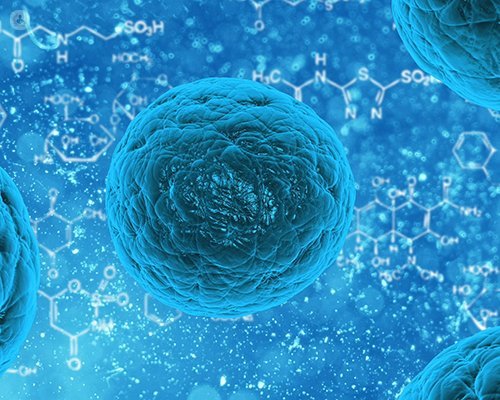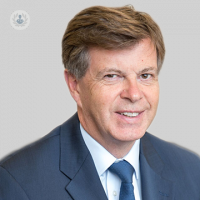All about allogeneic stem cell transplantation
Written by:Allogeneic stem cell transplantation is the procedure of a person receiving donated stem cells from a matched donor. The donor is usually a sibling with the same tissue type, or a matched unrelated donor. More recently, we have developed technology to allow half matched family members to be used as donors – this means that in practice almost everyone who needs a transplant has a suitable donor.

What are stem cells?
Adult or somatic stem cells are found in different types of tissue throughout the body, such as in the blood, the brain, bone marrow, blood vessels, muscles, skin and the liver.
Stem cells can divide or self-renew indefinitely, and they can generate a range of cell types from the originating organ, or even regenerate the entire original organ, and they usually lie in a dormant state until activated due to disease or tissue injury.
Why is allogeneic stem cell transplantation used?
Patients with conditions such as leukaemia, lymphoma, myeloma or myelodysplastic syndromes will have unhealthy stem cells due to being damaged by disease or by treatments such as chemotherapy and radiotherapy.
When a donor transplants their healthy stem cells, the cells of the immune system are also transplanted, these cells will hopefully attack and destroy the existing disease.
What is the process for stem cell transplantation?
Once a suitable donor is found, the next stage is to collect the stem cells. Prior to the transplantation to the patient, they will go through conditioning therapy where they will receive high doses of chemotherapy and sometimes radiotherapy, which kills the underlying disease and suppresses the immune system, allowing it to accept the donated stem cells.
What is the benefit of transplantation?
Transplantation allows for the cure of many leukaemias and lymphomas which cannot be cured by regular chemotherapy.
Why have your treatment at our hospital?
We are internationally recognised as pioneers in transplantation and have developed many new therapies that have reduced transplant complications and improved the long-term survival rate following transplantation.


